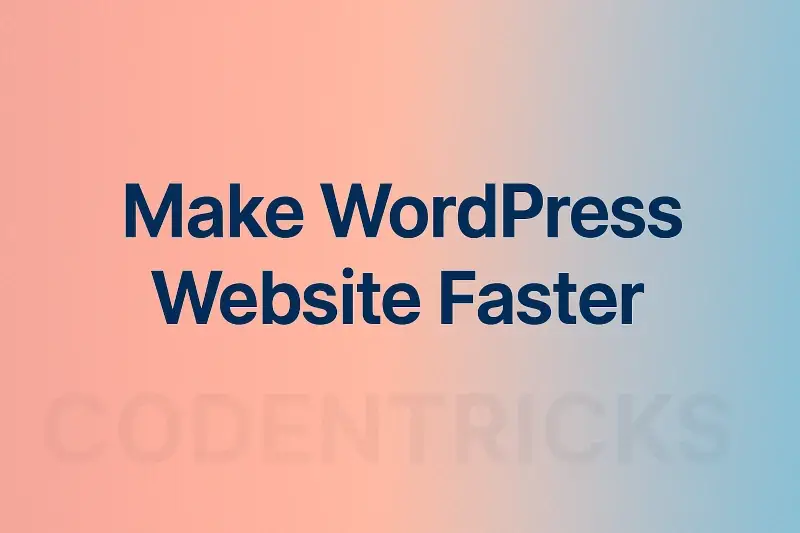In this post I are going to discuss how to make WordPress website faster with 10 proven speed optimization tips. A WordPress website faster is super important for SEO, user experience, and conversions . Here’s a complete step-by-step guide for WordPress speed optimization you can follow:

10 proven speed optimization tips to make WordPress website faster
1. Choose a Fast WordPress Hosting Provider
Your hosting provider plays a huge role in website speed. Avoid shared hosting if possible and opt for:
- Managed WordPress hosting (e.g., Kinsta, WP Engine)
- VPS or Cloud hosting (Recommended for better Google Page Speed, GTmetrix and for Core Web Vitals)
If you are using shared hosting then you can expect Google page speed of 80 with customization.
2. Use a Lightweight WordPress Theme
Avoid bloated themes with excessive features. Instead, choose optimized themes. You can choose lighter theme like Astra with Page Speed score of 90+ score.
3. Optimize Images Before Uploading
Large images slow down your site. Use:
- Compression tools (Gimp, Photoshop, TinyPNG, ShortPixel)
- Lazy loading
- use WebP format
4. Avoid using Heavy resourses
If you are using heavy resources like larger slider images, multiple high quality images, longer page with multiple section will also slow down your website.
5. Enable Caching
Install a caching plugin:
- LiteSpeed Cache (best if your host supports LiteSpeed server).
- WP Rocket (premium, easiest setup).
- W3 Total Cache or WP Super Cache (free alternatives).
6. Minify & Combine Files
- Minify CSS, JS, and HTML using your caching plugin.
- Use defer or async loading for JavaScript.
- Remove unused CSS/JS with plugins like Asset CleanUp or Perfmatters.
Use cache plugins to achieve this but remember it can break your website look also.
7. Use a Content Delivery Network (CDN)
A CDN distributes your content across global servers, speeding up delivery. Popular options:
- Cloudflare (free & premium plans)
- Bunny.net, KeyCDN, or StackPath for advanced performance.
8. Upgrade to PHP 8.0+ : Newer PHP versions are significantly faster.
9. Reduce Plugins
- Deactivate and delete plugins you don’t use.
- Replace heavy plugins with lightweight alternatives
Note: If you have installed woo commerce then you will also see performance drop.
10. Reduce External HTTP Requests
Each external script (Google Fonts, ads, analytics) adds load time.
Final Thoughts
A faster WordPress website improves SEO, user experience, and conversions. By following these 10 speed optimization tips, you can significantly reduce load times and keep visitors engaged.
Which tip helped you the most? Let us know in the comments!
If you have and query or suggestion or need assistance then please contact me, I will reply to fix your problem, if you like our content then you can subscribe to our Youtube channel. If you want to hire me then reach us at our Fiverr.







